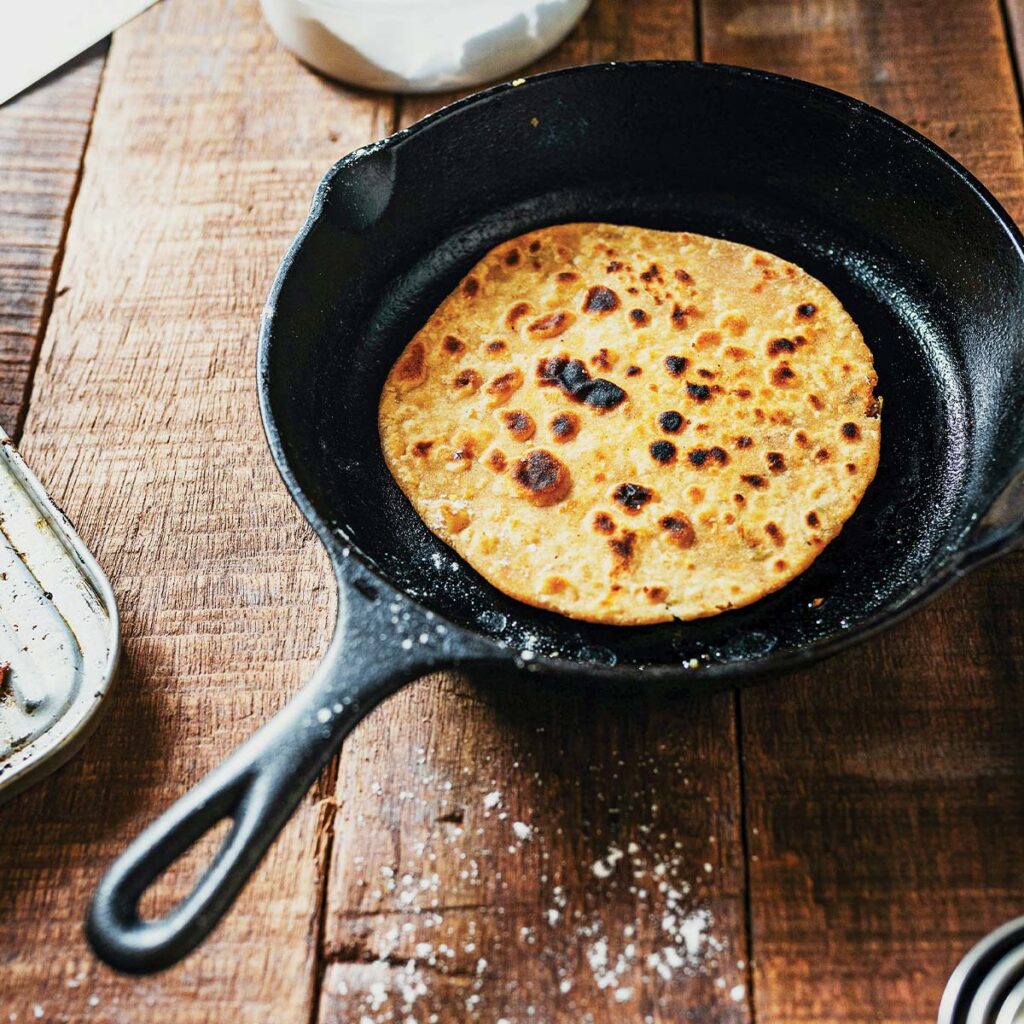Cast iron skillets are sturdy cookware that can last a lifetime with proper upkeep. However, concerns about its complicated care process often keep people from making the swap to cast iron. Using and cleaning cast iron may look a little different than with other cookware, but it’s well worth the investment and much simpler than it may seem. Read on to learn how to care for your cast iron, so you can enjoy it for years to come!
How to Clean Your Cookware
You should always wash cast iron skillets by hand. It’s best to clean your skillet after use, while it’s still warm. Rinse with warm water and use a brush or scraper to remove stuck-on food. Once washed, dry thoroughly with a cloth or paper towel. Make sure the skillet is completely dry before storing it to prevent rust.
To remove especially stubborn food residue, simmer a small amount of water in the skillet for three to five minutes and then use a pan scraper to remove it. Scorched residue can be removed by heating up salt in the skillet over high heat. Simply rinse out the salt afterward and wash and dry as usual.
The Secret to Seasoning

Cast iron needs to be seasoned to perform well, but what exactly does that mean? In this case, seasoning refers to layers of oil baked into the surface. This protective coating is key to keeping your skillet rust-resistant and nonstick. Brand new cast iron products are typically seasoned in the factory and come ready to use, but if you need to re-season an old skillet or buy one used, it’s good to know how.
How to Season Your Skillet:
- Scrub the skillet with warm water. Rinse and dry thoroughly.
- Use a paper towel to coat the surface with a neutral oil like vegetable oil, including the bottom and handle. Wipe away any excess until no visible residue remains.
- Bake the skillet upside down in the oven at 450° for one hour. Place a large baking sheet or aluminum foil on the bottom rack to catch any oil that drips.
- Remove and let cool.
- Your skillet is now seasoned and ready for use!
The Do’s and Don’ts of Cast Iron
Do:
- Clean and dry your skillet immediately after use.
- Use a non-scratch sponge while cleaning.
- Use gentle utensils while cooking, such as wood, silicone, and rubber.
- Use soap as needed. Contrary to popular belief, the occasional small amount of gentle soap won’t strip the seasoning.
Don’t:
- Soak your skillet or leave it out to dry. Water is a recipe for rust.
- Use steel wool or a metal scrubber while cleaning.
- Store food in your skillet.
- Put it in the dishwasher.




